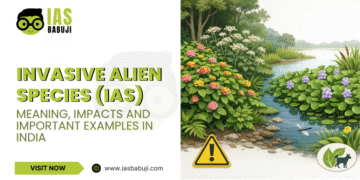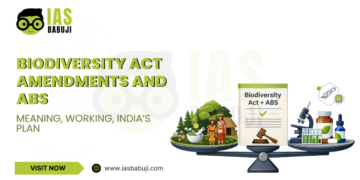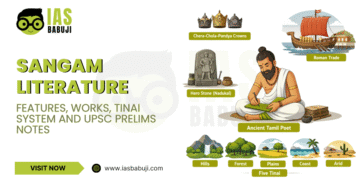This article speaks about Basavanna vachana; let us learn about Basaveshwara, Basava, and basavanna photos. It is a great thing to understand his philosophy and the way he inspired others with his thoughts in the form of vachanas. As a part of the IAS exam syllabus, try to know about the Basavanna. It will help you with the IAS exam preparations. Further, note all essential points while reading the below article. At the end of the article, you will understand Basavaand other details. Also, one can go through our other article for more information on the IAS exam and further related details. One needs to know the complete details before applying for the exam.
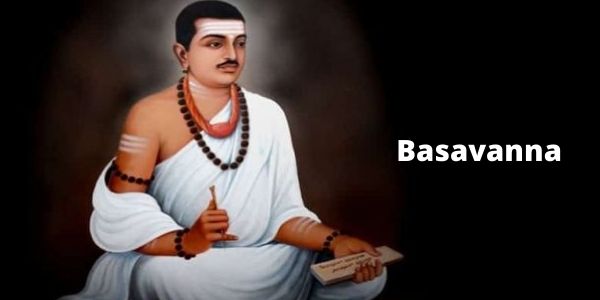
Introduction
In the first place, Basavanna / Basava was from the 12th century. He was a philosopher, social reformer, and preacher. Further, as a vehement social reformer, he had to suffer a lot at the hand of traditionalists and the other reformers during his time. He also started one of the most significant religious movements in the history of India, and he questioned the teachings and traditions of Vedas and ancient scriptures. Let us read the entire article and learn about basavanna photos and his thoughts. We have added the Basavanna photos in the article for a better understanding.
IAS Exam
Before getting into the main topic, let us know why it is essential for the IAS exam? As we all know, there are three rounds in the IAS exam. In the first round, the preliminary exam, there are two objective-type papers. Further, in the main paper, nine papers are descriptive types. One must choose optional subjects, and there will be GS papers; as a part of the general studies papers, one must know about the general topics that will help you with the IAS exam preparations. Then, to clear the IAS exam, one must work hard and put all effort into getting the best rank in the exam. To help you with the UPSC exam preparation, we have covered all information essential for one to know if applying for the exam. Click Here.
About Basavanna
Basavanna was born in 1130 in Basavana Bagewadi, Karnataka. According to the Veera Shaiva tradition, Basaveshwara is popularly known as Basavanna. He was from Indian 12th-century statesman, philosopher, poet, and Lingayat saint. He was born to a pious couple, Madarasa and Madalambike. Madalambike used to worship Nandeeshwara every day. Since childhood, basavanna refused to accept traditions and beliefs and left his home searching for truth and wisdom.
Basaveshwara was active during the rule of the Kalyani Chalukya/Kalachuri dynasty. Further, he studied in Kudala Sangama, which is present in a city in the Bagalkot district of Karnataka, and he finished his education in a gurukul at the age of 21. Hence, Basava is also known as Bhakti Bhandari or Basaveswara.

Later Life Stage
Further, Basavanna / Basaveshwara married Sharane Neelganaga, the daughter of his maternal uncle. Later, he became the Finance Minister and then Prime Minister in the King’s court. Further, the Basavaraj Devara Ragale by the Kannada poet Harihara (c.1180) is the earliest available account of the life of the social reformer. At the age of 28, came to realize that the brotherhood of man rests on the doctrine of a personalized, individual Godhood in the form of Ishtalinga.
Basavanna traveled to Mangalavede seeking to serve in the royal court of King Bijjala after having completed his studies at Sangama.
Philosophy
Basaveswara grew up in a family where traditions were highly valued, with a tradition of Shaivism. Further, as a leader, he developed and inspired a new devotional movement named Virashaivas. In the 7th to 11th centuries, the movement shared its roots in the ongoing Tamil Bhakti movement, particularly the Shaiva Nayanars traditions. Basavanna rejected the temple worship and rituals led by Brahmins and replaced them with personalized direct worship of Shiva. It is practiced by individually worn icons and symbols like a small linga. Later, this approach brought Shiva’s presence to everyone and at all times, without gender, class, or caste discrimination.
Basavanna Vachana
Further, the poetry by Basavanna, known as Vachanaas, raised societal consciousness; gender or social discrimination, superstitions, and rituals were all not accepted by the Basavanna. Vachanas were an innovative literary form written in simple Kannada language. In addition, the vachanas are translated to what is said. Further, these Vachanas reject the legends of Gods and Goddesses, scorn the Vedas, and mock ritual practices. Again, the vachanas wrote in the Kannada language.
Contributions and Works of Basavanna/Basava
- In the first place, Basavanna spread social awareness through his poetry, popularly known as Vachanaas.
- Further, he established Anubhava Mantapa, a place that Allamaprabhu and Akka Mahadevi became a part of.
- Basava has later conferred the title of Basavanna (Basava, the elder brother).
- Several works are attributed to Basavanna, revered in the Lingayat community.
- Further, he fought against the inhuman practice of the caste system. Finally, he taught the dignity of manual labor by insisting on work as worship.
- Basavanna gave two main essential principles. They are Kayaka (Divine work) and Dasoha(Equal distribution).
- Kayaka, according to this, each individual of the society should take up the job of his choice and perform it with all sincerity. Further, Dasoha means there must be an equal income for equal work.
- Further, Kayakajeevi may lead his day-to-day life with his hard-earned income.
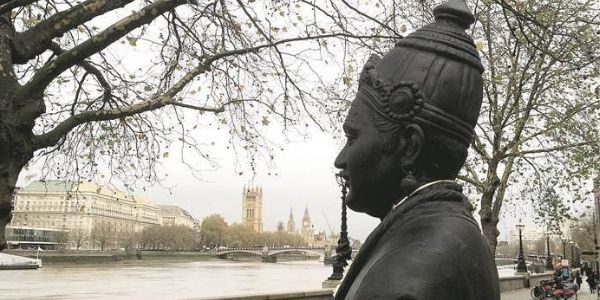
IAS exam Suggestions
To clear the IAS exam, one must have a proper strategy. It will be tough for one to clear the exam without any strategy. We see many students and working professionals who apply for the exam; however, only a few will be able to clear the exam. Further, we have added some tips to help you with the IAS exam preparations below. Try to use them for the best results in the exam. Finally, one must go through the official site for more information on the IAS UPSC exam. Know More.
In the first place, one must understand the exam syllabus and the paper pattern. Then, one must refer to the previous year’s question papers to help you learn about the paper pattern. Later, one must try to give mock tests and test series, and these things will help you improve your skills. Finally, one needs to read newspapers daily as one must be aware of current affairs. Make a proper timetable and give time for all subjects, including revision. Before starting with the new topics, ensure that you have gone through the previous topics.
Basava Jayanti
Basava Jayanti is the Hindu festival that the Lingayats celebrate in Karnataka and other parts of south India. This festival is the mark of the birth of the lord Basavanna. As per the Hindu calendar, the birth of Basavanna falls on the 3rd day of Vaisahaka month in the Shukla paksha.
It is the annual event celebrated in honor of the birth of Vishwaguru Basaveshwara, the 12th-century philosopher and social reformer. His spiritual discipline was based on the Arivu (true knowledge), Achara (proper conduct), and Anubhava (religious experience). The path advocates a holistic approach to Lingangayoga (union with the divine). Later, the Kalchuri king Bijjala (1157-1167, AD) appointed Basaveshwara as a karanika.
Anubhava Mantapa – Basaveshwara
Basavanna established the Anubhava Mantapa. It is a common forum for all to discuss the prevailing problems of socio, economic and political strata. Further, it was the first and foremost Parliament of India, where Sharanas sat together and discussed the socialistic principles of a Democratic setup.
Conclusion – Basavanna Vachana
To conclude, we have added all information related to the Basaveshwara, Basavanna vachana, Basavanna photos, and other important details. One needs to know about the basavanna vachana and his thoughts. Further, Basava had a vision that it was incorrect to sacrifice humans or animals to a formless God. But, till today, his concept of Ishta-Linga was declared a symbol of the religion Lingayatism. Further, get the complete information related to the other IAS exam study materials here; we have tried covering all topics that will help you with the exam. Know More. One can help you by giving all the details of the exam, in the end, it only depends on your hard work. This exam will not test your knowledge of subjects but also how well you can prepare for your dreams. Therefore, plan well and work hard on the same.
For more details, visit the links that we have provided, which will help you with the exam and related information.
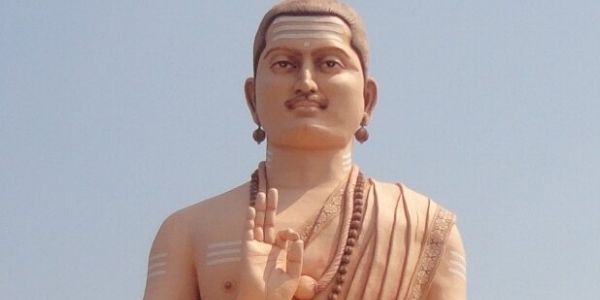
FAQs – Basavanna
Go through the below FAQs and learn about the basavanna vachana and photos.
Basavanna was a 12th-century Indian philosopher, statesman, Kannada poet in the Shiva-focussed Bhakti movement, and a social reformer.
Kalachuri-dynasty king Bijjala I
Virashaivas (heroes of Shiva) or Lingayats (wearers of the linga)
Editor’s Note | Basavanna
The article will help you by providing all details related to the basavanna photos, basavanna vachana, and other related information. It is again one of the vital topics for the IAS exam and we have added all the essentials. We have also added basavanna photos for a better understanding. We all know about the exam and the struggle behind the exam. It requires a lot of hard work and efforts. There are so many students who apply for the exam. Further, one can go for classes or one can study on their own. It depends from one to another, however, both the methods requires a lot of hard work.
In the later part of the article we have added details of the IAS exam and tips. It will help with your exam preparations. One must revise regularly to remember all concepts of the exam. We wish you good luck with your exams. Prepare well and work hard.

